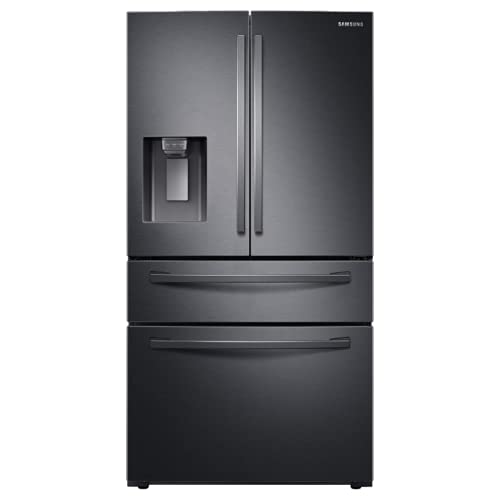Refrigerators are available in different sizes and shapes. They can fit into tight spaces, such as dorms.
Some models also connect to smart devices. They let you monitor your fridge from afar and troubleshoot any problems that may occur. You can also control them using voice commands.
Noise
 Refrigerators produce a variety of noises when they are operating. Some of these sounds are more noticeable than others. If you hear any of the below sounds, determine its origin and look for a quick fix before calling a repair company for your fridge.
Refrigerators produce a variety of noises when they are operating. Some of these sounds are more noticeable than others. If you hear any of the below sounds, determine its origin and look for a quick fix before calling a repair company for your fridge.Rattling
The fridge could rattle in the event that there isn't enough space between it and the wall or cabinet or if its sitting at an unlevel angle. It's simple to solve. It's just a matter of make sure there are at least a couple of inches between the fridge and the wall or cabinet, or you can adjust the leveling screws or legs to raise or lower your fridge.
Hissing
The compressor may hiss when cooling your food. This is a normal sound that is caused by the refrigerant or compressor fluid that is moving through the system. If you're worried, count how often the compressor is running and contact a refrigerator repair service immediately in the event that it occurs more frequently than normal.
Squeaking
The sound of refrigerators can be loud if the coils or fan are filthy. If you notice your fridge making a squeaking sound, clean the coils or fan using a vacuum cleaner using a brush attachment, water and a rag, or simply use dish soap and water. It is important to clean the fridge twice a year and best fridges more frequently if your fridge is older or is used frequently.
Clicking
A clicking sound may be heard from a refrigerator. It is usually due to ice around the freezer fan. This can be resolved with a manual defrost, but it is likely to recur until the issue is resolved by a professional service.
It can also happen when the fridge is shut off, so make sure to turn it back on in the event that this happens. This sound can also be caused by the Ice maker if you have one to your fridge, so be sure to ensure this is switched off when you aren't using continuous ice.
The hum coming from your fridge is normal. It can be louder during certain times of day, or after heavy stockings or intensive freezer functions. The refrigerator is working harder to keep your food cool, which means it has to work faster. This isn't an indication of an issue.
Dust
Household dust attracts dirt bacteria and other microorganisms as well as traces of daily exposures to chemicals in the home. The tiny particles can trigger allergic reactions as well as inhalation and provide a perfect surface for microbes, including those that could cause infection when they come into direct contact with an open cut.
It's impossible to clean a fridge completely, but cleaning regularly can help reduce dust build-up and keep the temperature constant. A dirty fridge is a waste of energy due to overheating, and is inefficient. If you suspect your fridge is making louder noises than normal, or is running out of power due to overworking it It's probably time to call the professionals.
Unlike other airborne particulates, dust doesn't just come in from the outside as is often believed. It contains resuspended soil from the house that is often contaminated with lead and other toxicants, in addition to pollen, mold spores and car exhaust. It also retains legacy pollutants such as DDT that were banned half 100 years ago.
Some compounds, like flame retardants, such as decabromodiphenylether, volatilize into the air. However, the majority of chemicals found in house dust originate from objects that have been knocked off, like electronic equipment. High-molecular-weight substances, such as surfactants used in cleaners and paint strippers, also migrate directly into dust.
A dusty refrigerator can negatively impact your health, not to mention contamination of food. It could harbor allergens like pet dander and droppings from cockroaches, which can cause asthma attacks and allergic reactions. It also can contain bacterial spores, such as staphylococcus aureus, which could cause infection if they make their way into a wound.
Researchers have discovered that contaminated dust is linked to a wide variety of health issues such as cardiovascular disease, cancer, leukemia, and inflammatory intestinal diseases. Recent research has revealed that the dust in the homes of children with leukemia had higher levels of PCBs, PBDEs, and polycyclic aromatic hydrocarbons.
Condenser Coils
If refrigerators are operating properly, the coils on the back and front of the appliance should help disperse the heat produced by the compressor. However, when these radiator-like components are covered with dust, pet hair, or lint, the compressor is forced to work all day long trying to cool the fridge, and will eventually wear down the unit. It is important to keep your coils clean.
Before you begin, unplug and shut off the refrigerator's power source. This will reduce the risk that you or your family members could be electrocuted while working on the appliance. If you're allergic to dust it's recommended to wear a face mask. You will then need to locate the coils. They are typically located at the rear of the fridge or on the front, across the base in some units. If you're not sure where to look, consult your fridge's owner manual or contact the manufacturer for more details.
Once you have found the coils, you will have to take off the access panel if you have one and then alternate between vacuuming the coils with an hose attachment that is narrow and rubbing them with a condenser brush to clean the coils. Take your time to avoid breaking or bent coils. Replace the kick panel or push the refrigerator into position, then connect it to the electrical outlet.
You can employ an expert if you're at ease doing it yourself. It's cheaper and less trouble to keep up with the cleaning routine to prevent the problem from occurring in the first place.
Maintenance
Refrigerators are powerful appliances that run all day to cool down your food. They need regular maintenance to enable them to perform their job well. Simple preventive maintenance will ensure that your machines run smoothly for many years.
Clean the door seals. Jelly and other foods that are sticky can cause a buildup and stop the gaskets from sealing tightly and allowing cool air to escape out of tiny openings. Every few months, clean them clean with baking soda solution and warm water using a sponge or toothbrush.
Another spot to check for issues is the fan in the back of the fridge. It can become noisy when it's clogged with paper, insulation and even mice (gasp). Take the shelves off, unplug the refrigerator and remove all the parts that are removable. Vacuum cleaners with connections for hoses are a great option to clean the coils and the area around them. Make sure to turn off the fridge off when you're finished.
It is recommended to consult the owner's manual to find out more on where to find the coils and the fan and what sort of cleaning tools you may require. It's also a good idea to read through the warranty carefully, to be sure you know what is and isn't covered.







